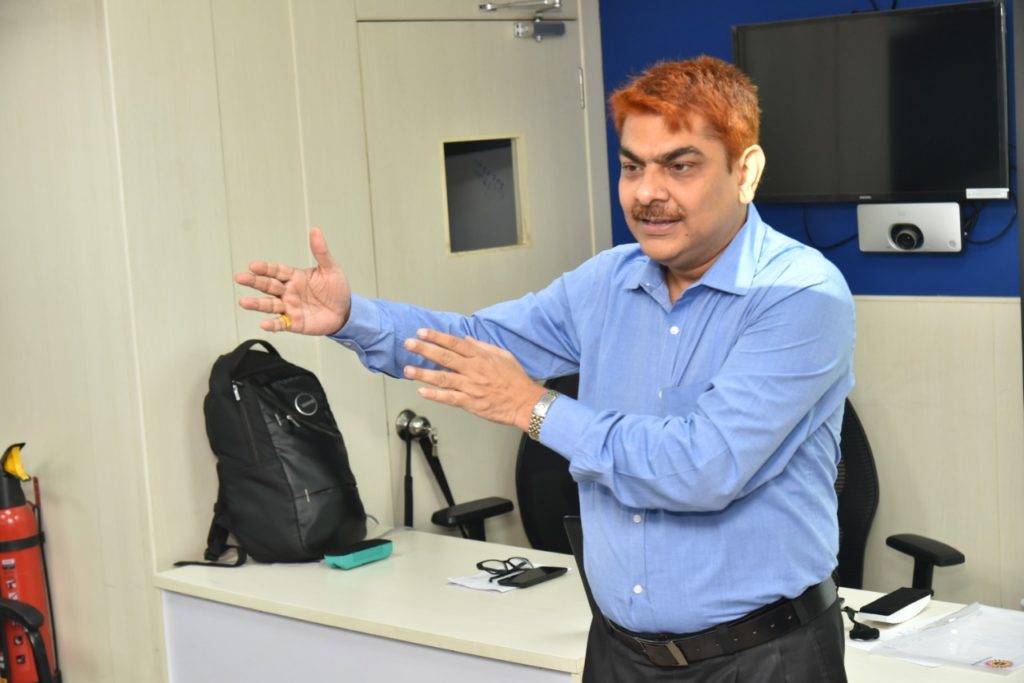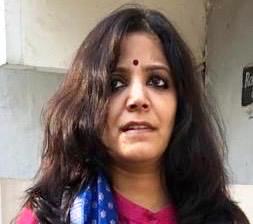A good education system is the backbone of a society and is the assurance of its sustainable survival. The system ensures the availability of good citizens to society. The prevailing education system in India is not only antiquated but also becoming obsolete.
The system is unable to provide basic skills, knowledge, and training to students as it supposed to. Most of the educational institutions, the temples of knowledge and learning, are now homes for all kinds of harassments and wrong practices. Reports of prevalent plagiarism [1-6] and sexual harassments [7-9] in academic institutions are frequent. The reports of harassments, suicides, and rapes are not surprising but rather underreported. There are many bad elements, who instead of teaching and promoting education, often threaten, harass, and suppress young minds. Under this environment, the education system is unable to produce good citizens and the survival of a civilized society is questionable. It is also unrealistic to harvest economic and social “dividends” from the poorly educated young population.
I got some opportunities to work with students and observe their work-behavior, I was deeply saddened and disappointed with the quality. Most of the students lack analytical and communication skills and do not have a professional attitude – the basics required to be employable. Lack of basic skills reinforces Dr. Narayan Murthy’s and many other business leaders’ concerns that the majority of young people coming out of colleges are unemployable [10-12]. Although, I found the students were very eager to learn.
The emphasis is not on teaching or learning but on qualifying the tests and exams. Students are discouraged to ask any question or to have any open discussion. Students are asked to memorize the material without much understanding of the concepts. Sometimes teachers are highly un-professional, openly flaunt rules and regulations, and encourage their students to plagiarize and other unethical practices and students never get a chance to articulate or to write a simple paragraph [1, 2, 5].
All this happens in absence of a good governing or oversight system. The existing oversight system, especially in the higher education system, has many flaws and ‘conflicts of interest’. The current oversight system in the majority of institutions consists of the head of the institution and some sort of governing body or board. In the governing board, the members are nominated/selected by the same head of institution the board going to oversight. The board members may also have significant academic or financial interests with the head of the institute. As the result, the oversight board is neither independent nor effective as perceived and the unethical practices and unprofessional behavior continue to thrive. Not having the right person for the top position with enormous decision-making and discretionary powers in absence of effective oversight is a recipe to fail the institution for its purpose.
There are many good teachers who silently work hard and instill good values and skills among their students. Such teachers had produced many good and successful citizens. Similarly, there are several good institutes which are “islands of excellence” and provide good education and learning experience for the students. Some of these are obvious, such as IITs, IIMs, and other well-recognized national institutes and central universities. But students need to compete insanely to get admissions in these “islands of excellence”. Unfortunately, in absence of good opportunities, many of these better-trained students leave the country to serve abroad.
In reality, the situation is no better abroad for these better trained. The majority of these ‘better trained’ join corporations to serve as analysts or at some junior level positions with lesser salaries and for longer periods than their native counterparts. It is shameful when the nation’s government requests for more visas for its ‘better trained’ manpower rather than creating better opportunities back home [13]. Policymakers must realize and recognize the trained manpower (the human resource) is the greatest and the best resource a nation could have, and should not lose it. They must develop policies to keep and encourage this talent to serve and remain in the country. India cannot afford to export it’s the best and brightest and ‘better trained’ ones abroad.
Another problem is English, as most of the education, particularly the higher one is in English. But India neither has enough good teachers who can teach effectively in English nor has affordable quality books in English. The result – students graduating with their degrees neither have sufficient knowledge of the subject nor have communication proficiency [12].
Let’s learn from the experiences of other Asian countries, like Japan, South Korea – who become developed – not because of English proficiency but with their excellent education systems. Similarly, China has developed a robust education system in Mandarin, not in English, and is developing at a much faster rate and inventing many excellent technologies.
Government and society should recognize and reward good and honest teachers. These good people should be given charge and responsibility to recruit and select future teachers. Similarly, select the heads of institutions, who have significant academic accomplishments and significant international exposure, so that they cannot claim that “Indian standards” are different and lower than “world or international” standards [14]. The persons with international credentials and experiences should be given the responsibility to lead and bring necessary changes in the academics and in the administration to make the institution as per with any world standard. Any ‘conflicts of interest’ must be removed in the oversight mechanism as the governing boards should be transparent and effective to resolve grievances and issues effectively at the institute level, without approaching the country’s overcrowded and overburdened judicial and legal systems. Let’s make the educational institutions the safe places where students during their formative years could explore different ideas, allowed to learn from their mistakes without any fear, and could gain useful skills and good life-long habits that will make them successful, productive, and responsible citizen.
Cited References and Sources:
1. Do Indian educational institutes take plagiarism seriously? Educationists weigh in. December 07, 2017, The News Minute; www.thenewsminute.com/article/do-indian-educational-institutes-take-plagiarism-seriously-educationists-weigh-72790
2. Singh HP, Guram N. Knowledge and attitude of dental professionals of North India toward plagiarism. N Am J Med Sci. 2014; 6:6–11.
3. In India, plagiarism is on the rise. May 30, 2010, Global Post; www.pri.org/stories/2009-10-18/india-plagiarism-rise
4. In India, You Can Plagiarize and Flourish. June 5, 2015, The Wire; https://thewire.in/education/in-india-you-can-plagiarize-and-flourish
5. Anurag Chaurasia – Stop teaching Indians to copy and paste. June 28, 2016, the Nature; www.nature.com/news/stop-teaching-indians-to-copy-and-paste-1.20157
6. K. S. Jayaraman – Indian science adviser caught up in plagiarism row. February 24, 2012, the Nature; www.nature.com/news/indian-science-adviser-caught-up-in-plagiarism-row-1.10102
7. Toxic campuses: Sexual harassment and gaslighting are a reality in Indian colleges. October 08, 2018, The News Minute; www.thenewsminute.com/article/toxic-campuses-sexual-harassment-and-gaslighting-are-reality-indian-colleges-89639
8. Sexual harassment in colleges – what you need to know. April 4, 2018, Your Story; https://yourstory.com/2018/04/sexual-harassment-colleges-need-know/
9. 50% increase in sexual harassment cases on campuses in 2017. March 20, 2018, Times of India; http:// timesofindia.indiatimes.com/india/50-increase-in-sexual-harassment-cases-on-campuses-in-2017-minister/articleshow/63383234.cms
10. Committee on Corporate Participation in Higher Education: Report of N.R. Narayana Murthy Committee, Planning Commission, India, 2012.
11. India facing a talent crunch: Narayana Murthy. April 18, 2018, the Live Mint; www.livemint.com/Companies/rxvRqNf8gMGCfaipLATZ0N/India-facing-a-talent-crunch-Narayana-Murthy.html
12. Conceptualizing an inclusive future of work in India. August 27, 2018, Observer Research Foundation; www.orfonline.org/research/43609-conceptualising-an-inclusive-future-of-work-in-india/
13. India to raise H1B issue with U.S. July 27, 2018, The Hindu; www.thehindu.com/news/national/india-to-raise-h1b-issue-with-us/article24524025.ece
14. The games people play (or not). September 23, 2010, The Economist; www.economist.com/asia/2010/09/23/the-games-people-play-or-not
1,246 total views, 1 views today



An excellent article! I am an Educationist with extremely high qualifications and enormous International exposure. I have lived and stayed in numerous countries of the world, and speak four International languages alongwith excellent Hindi. But guess what! The Indian system gave all kinds of opportunities to the undeserved especially with respect to the high positions, but always kept me jobless! I could either not get hold of a position or if I did, was thrown out because the Heads were bloody insecure and jealous of me! That’s the reality of my life. I am a wasted Human Resource in India due to which not only my life has been spoilt, but also other lives that could have benefitted from my vast knowledge! I have been deemed as a fabulous Teacher and a Worker regardless of what field it is, but this is what became a curse for me in a country like India! If there is anyone, who is touched by my story and still wants to help me, please contact me.